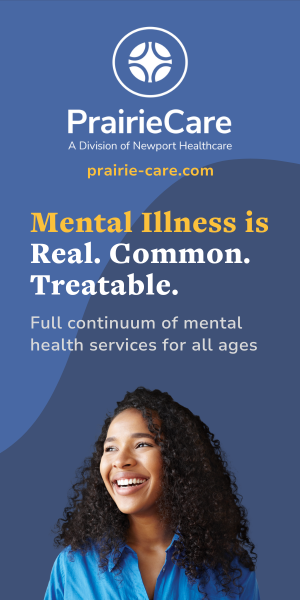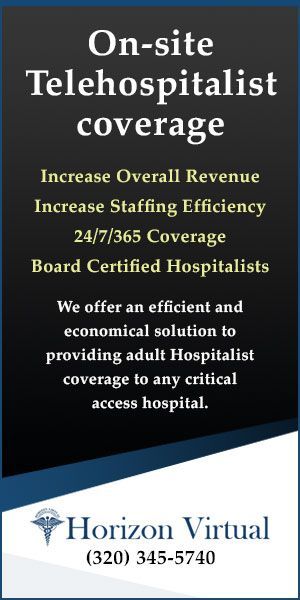n July 1, 2024, CMS launched a new research trial to develop new protocols for supporting people with dementia and their unpaid care givers. The number of participants required for the voluntary nationwide model test filled quickly and research will be gathered over the next eight years. The Guiding an Improved Dementia Experience (GUIDE) model involves comprehensive, coordinated dementia care and ways to improve quality of life for people with dementia, reduce strain on their unpaid caregivers and enable people with dementia to remain in their homes and communities. It will achieve these goals through Medicare payments for a comprehensive package of care coordination and care management, caregiver education and support, and respite services.
Dementia Care
The GUIDE Model
Guiding an improved dementia experience
BY Morgan Daven
Among other things, GUIDE advances key goals of the National Plan to Address Alzheimer’s Disease, which was established through the bipartisan National Alzheimer’s Project Act (NAPA) and has, for over a decade, accelerated federal actions to optimize the quality of care for people with dementia and their caregivers, while advancing research toward a cure. The GUIDE model builds off this extensive coordination within HHS and major input from various external stakeholders, including the Alzheimer’s Association.
Model Overview
Currently, more than 7 million Americans are living with Alzheimer’s disease, and that number is projected to double by 2060. Dementia is one of the costliest conditions to society. Total payments for caring for Americans 65 and older with Alzheimer’s or other dementias are projected to increase from $360 billion in 2023 to nearly $1 trillion by 2050. People with dementia often have multiple chronic conditions and receive fragmented care, leading to high rates of hospitalization and emergency department visits.
In Minnesota, nearly 102,000 people are living with Alzheimer’s, and there are 164,000 unpaid caregivers supporting them. People living with the disease often end up needing 24/7 care. The challenges of managing health care, providing constant support and dealing with the behavioral and psychological symptoms of dementia can present a significant mental, physical, emotional and financial burden for caregivers and disproportionately impact Black, Hispanic and Asian Americans, Native Hawaiian and Pacific Islander populations.
In Minnesota, nearly 102,000 people are living with Alzheimer’s.
Despite its prevalence, many people with dementia do not consistently receive high-quality, coordinated care. As a result, they experience poor outcomes, high rates of depression and poor management of other co-occurring conditions. Dementia also significantly impacts the family and other unpaid caregivers, who often provide significant amounts of assistance. Many of these caregivers are Medicare beneficiaries reporting high levels of stress and depression, which negatively affects their overall health and increases their risk for serious illness, hospitalization and mortality.
The GUIDE model will test alternative payment methodology to deliver comprehensive, coordinated dementia care. It will assign people with dementia and their caregivers to a care navigator who will help them access services and supports that include clinical services and nonclinical services such as meals and transportation through community-based organizations.
Facing Challenges in Dementia Care
Dementia care is a complex maze encompassing interactions with primary care providers, specialists (including those involved in managing chronic conditions coexisting with cognitive issues), social services, medication management and caregiver support. Navigating this maze is difficult and often frustrating for people living with Alzheimer’s or other dementia and their caregivers. Without a clear path forward, any roadblock or detour along the way can have considerable ramifications. This could materialize as delayed detection, diagnosis and treatment of early-stage cognitive issues or mild cognitive impairment (MCI). For caregivers, a detour could cause them to miss valuable or necessary educational opportunities, miss connections with community-based services for respite and behavioral health support or be unable to locate resources that could help reduce their stress.
Breakdowns in transitions of care limit high-quality, comprehensive and/or appropriate dementia care. The recent advancements of new FDA-approved Alzheimer’s treatments designed to delay progression in the disease’s early stages are expected to result in more people seeking care and services. If timely diagnosis does not happen, however, the benefits of the new treatments are limited.
In response to these concerns the GUIDE model breaks down the key drivers of poor quality dementia care in the following five ways:
- Defining a standardized approach to dementia care delivery for model participants – this includes staffing considerations, services for people with dementia and their unpaid caregivers and quality standards.
- Providing an alternative payment methodology to model participants – CMS provides a monthly per-beneficiary payment to support a team-based collaborative care approach.
- Addressing unpaid caregiver needs – the model aims to address the burden experienced by unpaid caregivers by providing caregiver training and support services, including 24/7 access to a support line, as well as connections to community-based providers.
- Respite services – CMS pays model participants for respite services, which are temporary services provided to a beneficiary in their home, at an adult day center, or at a facility that can provide 24-hour care for the purpose of giving the unpaid caregiver temporary breaks from their caregiving responsibilities.
- Screening for Health-Related Social Needs – model participants are required to screen beneficiaries for psychosocial needs and health-related social needs (HRSNs) and help navigate them to local community-based organizations to address these needs.
Delivering equitable care and addressing health disparities in dementia are crucial aspects of the GUIDE model. CMS actively sought out organizations that provide care to underserved communities for participation in the GUIDE model. The GUIDE model offers a variety of financial and technical supports to ensure that participating safety-net providers can develop their infrastructure, improve their care delivery capabilities and participate successfully in the model.
Related Initiatives
Coordinated care for individuals living with Alzheimer’s is fragmented or absent in most settings, particularly in primary care. To encourage and improve coordinated care, several dementia care navigation programs have been developed in recent years. These programs improve health outcomes, reduce emergency room visits, lower hospital readmissions, shorten hospital stays and reduce delays in long-term care placement. Effective care coordination improves the quality of life for the person living with the disease and the care partners. Dementia care navigators play a central and critical role in these care coordination efforts. These navigators may sometimes provide clinical care and partner with affected individuals and their care partners to help them access the complex health care system and treatment landscape, including providing ongoing disease education, care guidance and counseling, and connecting families to community resources and support.
We must ensure the highest quality of life for people at all stages of the disease.
The Alzheimer’s Association is dedicated to improving dementia care navigation to ensure that everyone has access to quality dementia care, with an emphasis on reaching underrepresented communities. To deliver this important care in partnership with physicians and health systems, the Alzheimer’s Association has created its Dementia Care Navigation Service (DCNS). This telehealth dementia care model provides medical management as well as care navigation for people living with dementia and their caregivers. It is designed for collaborative care with primary care providers and neurologists to improve patient outcomes and expand provider capacity by integrating with electronic health platforms for seamless referrals and clinical data exchange.
Additionally, to encourage more coordinated care models across the country for people living with Alzheimer’s and other dementia, the Alzheimer’s Association launched the Dementia Care Navigation Roundtable (DCNR). The DCNR includes experts from across the health care industry including clinicians, payers, researchers and other stakeholders who are committed to advancing the delivery of high-quality, person-centered dementia care navigation. The roundtable offers an incredible opportunity to develop the future roadmap for dementia care navigation in this country, community by community.
An important cornerstone for this work are the following guiding principles for dementia care navigation:
- The goal of patient navigation is to be person-centered and family-centered for collaboration and engagement.
- Dementia care is culturally responsive and addresses disparities in access to health care and support services.
- Creating well-defined roles and responsibilities for all members of the dementia care navigation team.
- Addressing medical, legal, financial, emotional and other barriers people living with the disease and their families face.
- Providing coaching, education, and coordination of care.
- Focusing on the family and other care support organizations.
- Utilizing evidence-based processes and protocols.
Physician Engagement
Medical professionals and health systems can improve how they assess cognition, provide timely dementia diagnosis and receive support to better direct patient management, leading to high-quality care. Alzheimer’s and dementia are complex health conditions, and new treatments and health care system barriers add to this complexity. These new treatments are called Donanemab (Kisunla™) and Lecanemab (Leqembi®) . Many other potential treatments are advancing in the pipeline. As work with the GUIDE model and efforts from the Alzheimer’s Association progress, physicians will always be at the forefront of coordinating care, which begins with early diagnosis.
“Following a dementia diagnosis too many individuals and families are left on their own groping in the dark for services that can help them. I don’t want others to go through what I did. I lost two to three years searching for answers. It was time I could have spent differently.”
— Pamela, individual living with early-onset Alzheimer’s disease
Only half of those with Alzheimer’s disease ever receive a diagnosis, delaying needed care and potentially putting them at risk.
As you treat patients with dementia here are some takeaway points:
- Improve health outcomes. More consistently deliver a timely and accurate diagnosis, monitor treatment compliance and limit complications related to treatment among older adults with comorbid conditions
- Enhance the patient experience. Ensure clear communication that includes health literacy compatible answers and well-planned next steps, so that individuals and their families can access appropriate treatments and care services, make financial plans and participate in clinical trials.
- Reduce the burden on health care professionals. Empower health care professionals with the training, resources and support to deliver a difficult diagnosis, and provide follow-up care through an interdisciplinary approach that optimizes the roles of the entire health care team.
- More effectively manage the cost of care.
- When dementia is diagnosed earlier in the disease process, treatment can be modified with knowledge of a patient’s cognitive impairment, resulting in more cost-effective management and improved patient adherence, potentially preventing or reducing unnecessary hospitalizations and emergency department visits.
- Identify strategies and solutions to provide people living with dementia and their caregivers access to providers and systems that prioritize diagnosis and care.
- Offer education for providers. Heighten awareness and access to detection and diagnosis; enhance care coordination, management and access; and reduce the economic burden of this devastating disease for patients, caregivers and healthcare systems.
These are proven strategies to improve outcomes, as is making regular testing and multiple treatment options the standard of care.
We must ensure the highest quality of life for people at all stages of the disease. Health care systems and medical professionals must be engaged so they have the most up-to-date, evidence-based information and strategies to make timely diagnoses and develop treatment and care plans. Empowering and mobilizing our communities to give all people access to early diagnosis, treatment and quality care throughout their journey is an important next step toward improving the standards of care and ensuring the highest quality of life for people at all stages of the disease.
Morgan Daven is vice president of health care strategy at the Alzheimer’s Association.
MORE STORIES IN THIS ISSUE
cover story one
Health Care at the Crossroads: Securing the future of patient care
By Lisa Schweiger, MD, and Nick VanOsdel, MD
cover story two
Talking to Adolescent Patients: A new toolkit to improve communication




















